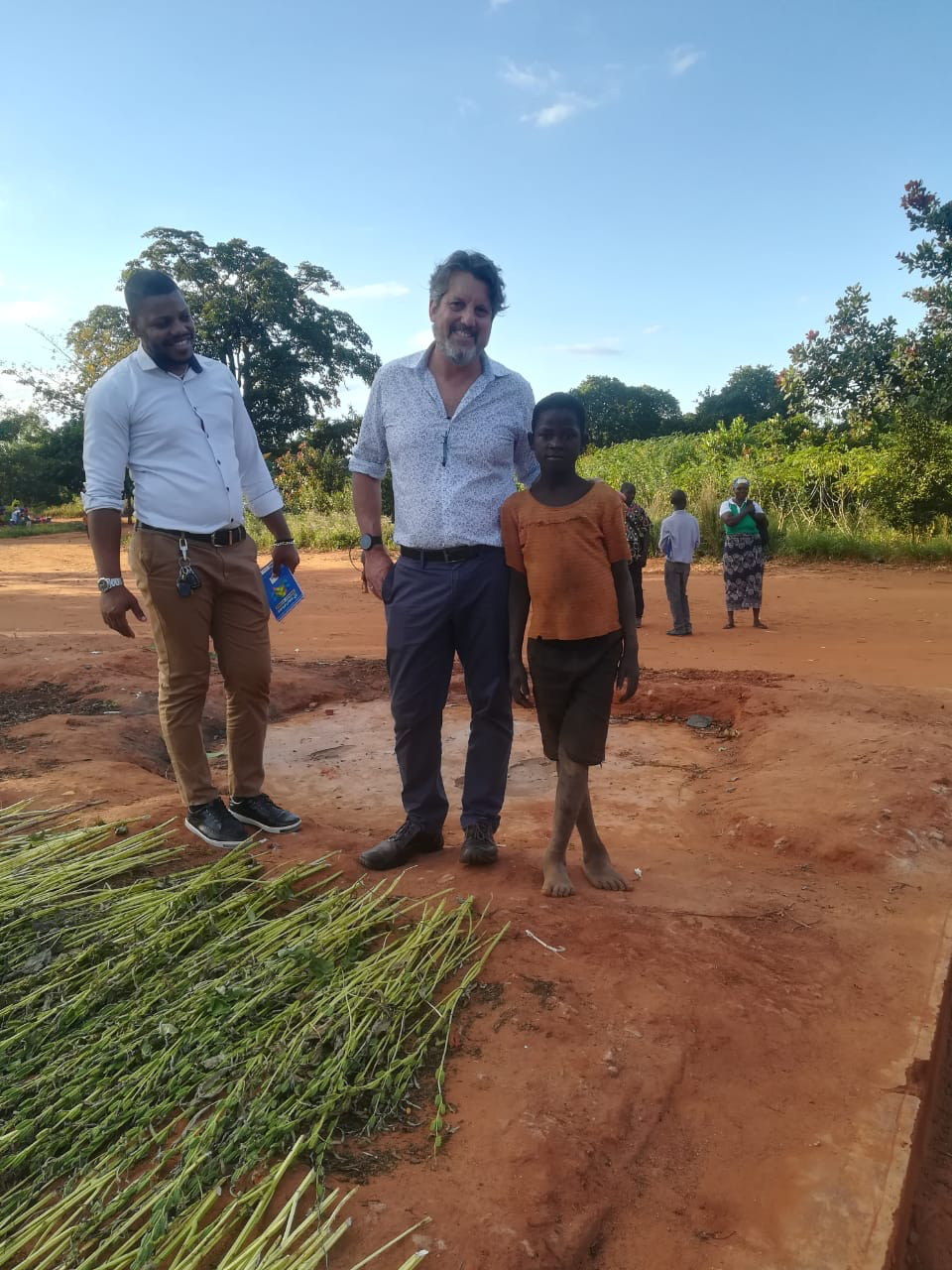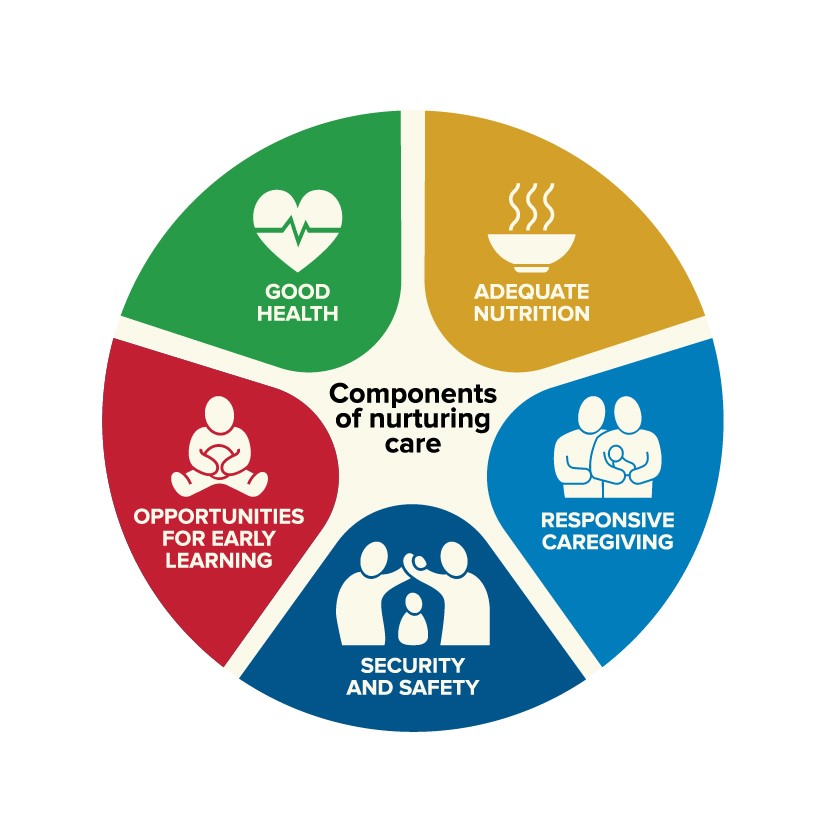
A new start for early childhood

Early Childhood Development Coordinater, Gino Regina (left), and Matthew Frey (center) spend time with community members in Nampula, Mozambique.
When I started my career in child-focused health and development in Nepal more than 25 years ago, early childhood development (ECD) was a very different field. Back in those days, ECD was widely focused on preparing children from age three for primary school.
Since then, the landscape for child health has changed in many ways. For one, more children are surviving – a happy result of progress against devastating illnesses, including diarrhea and other preventable infections.
However, alongside progress has come new challenges. As more children survive worldwide, we’re wrestling with how to keep them healthy, especially in environments where they don’t receive optimal nutrition, basic care, or access to critical services like water and sanitation.
New brain science has opened our eyes to the power that basic caregiving, early learning, infection prevention, and protection practices have in helping kids meet their full potential later in life. That research has also helped us understand the damage that can come from not addressing these basic needs.
These costs are not just health related. Children who are delayed early in life are estimated to forfeit about a quarter of average adult income per year. This lack of productivity can impact future generations, reinforcing a cycle of poverty.
We can’t afford to trade one problem for another – survival, for a failure to thrive. Over the past two decades, strong evidence has clearly pointed to a need to reach families of children under three with child development services. But how?
As I moved on in my work, to Haiti and Vietnam, evidence-based examples of how to best fill this gap were scarce. Most approaches focused on expensive vertical “parenting” programs without strong links to the public sector.
A Sea Change in Our Approach to Early Childhood
When I joined PATH in 2012, we looked at how ECD approaches could be linked to the public sector. The public health sector is the only sector that interacts routinely with families from the most critical time of the first 1,000 days (early pregnancy through two years of age), when caregiving interventions have the greatest impact.
We found that the health system typically has 15-30 “touch points” with families during this time. Moms travel to health clinics for pre-natal visits, community health workers visit homes with young children, and parents take their children to public health services for vaccines and illnesses.
It seemed the obvious, and perhaps only, way to scale holistic programs for the youngest children.
Now a few years later, our program in Mozambique, Kenya, Zambia and Ethiopia is demonstrating, in a very practical way, how this might work. Our program is aligned with the Nurturing Care Framework – which I was privileged to have helped design, draft, launch, and roll out in Africa – a global policy framework supported by national and subnational leaders, the World Health Organization, UNICEF, and other partners.
 The best way to explain the program is to show you where, and how, it works.
The best way to explain the program is to show you where, and how, it works.
Today, this model is expanding rapidly and operates in 11 districts of Mozambique as well as Kenya and Zambia, reaching approximately two million people. The approach is now also being taken up enthusiastically in Ethiopia with PATH’s support. It embeds child development into the DNA of the health system, including policies, plans, technical documents and packages, job aids, workforce training curricula, indicators, and supervision tools.
We are excited to have demonstrated the operational feasibility of this approach. Now we’re evaluating its impact on child development outcomes.
Championing the Global Child Thrive Act
As we make progress in countries like Mozambique, Kenya, Zambia and Ethiopia we need help from all countries. The US government is important to our efforts, because of the funding and political support it provides for young children in the poorest countries.
That’s why PATH is supported the passage of the Global Child Thrive Act, a bipartisan piece of legislation that mandates USAID and other federal agencies to integrate ECD across its relevant programming platforms. This ensures that ECD reaches more children and becomes a visible government priority.
The field of ECD is growing and changing. The approaches are being driven by science, scalability, and an enthusiasm for children’s health. It’s a new start for ECD, and at PATH we’re excited to be a lead contributor pointing the way forward for the health sector within this broader movement.



